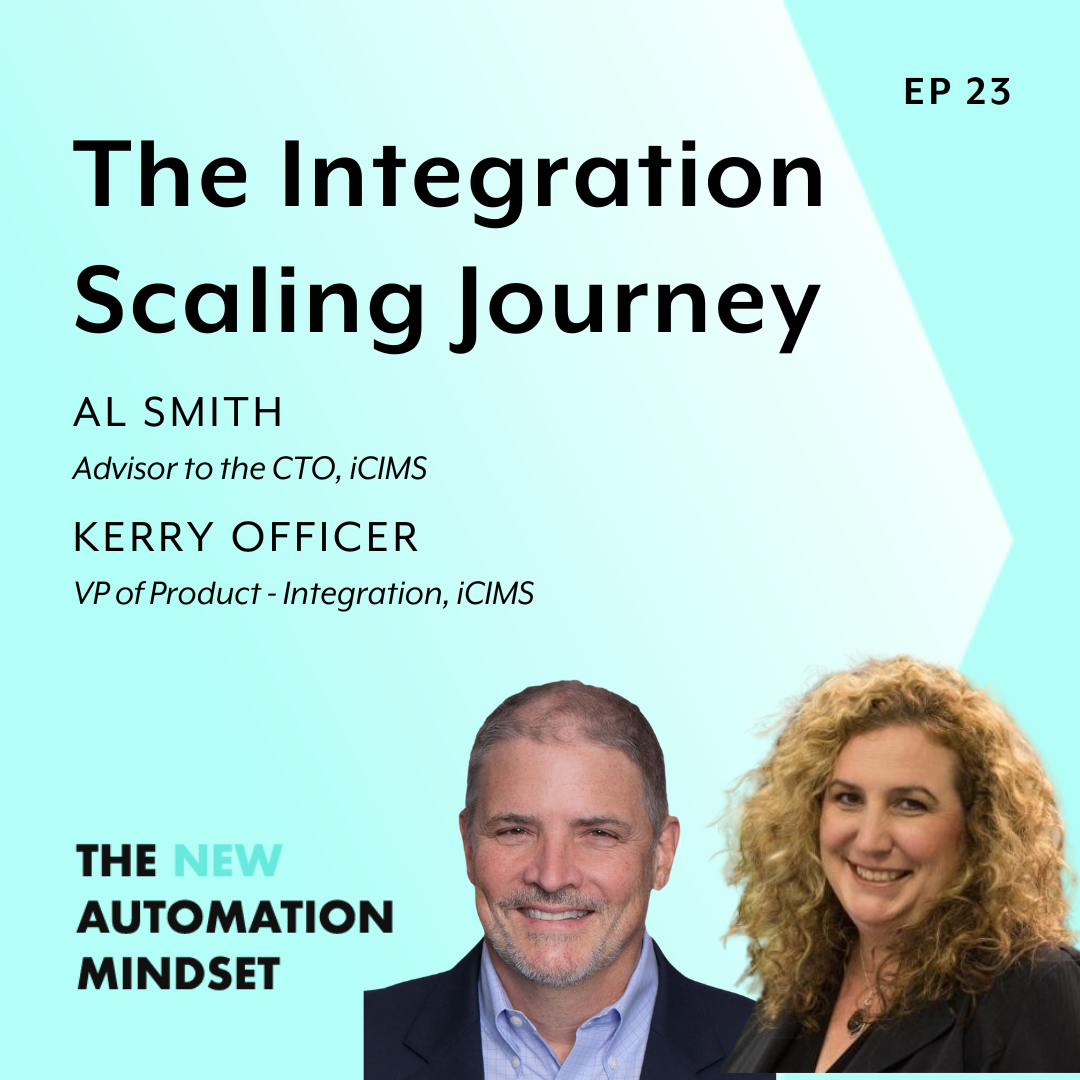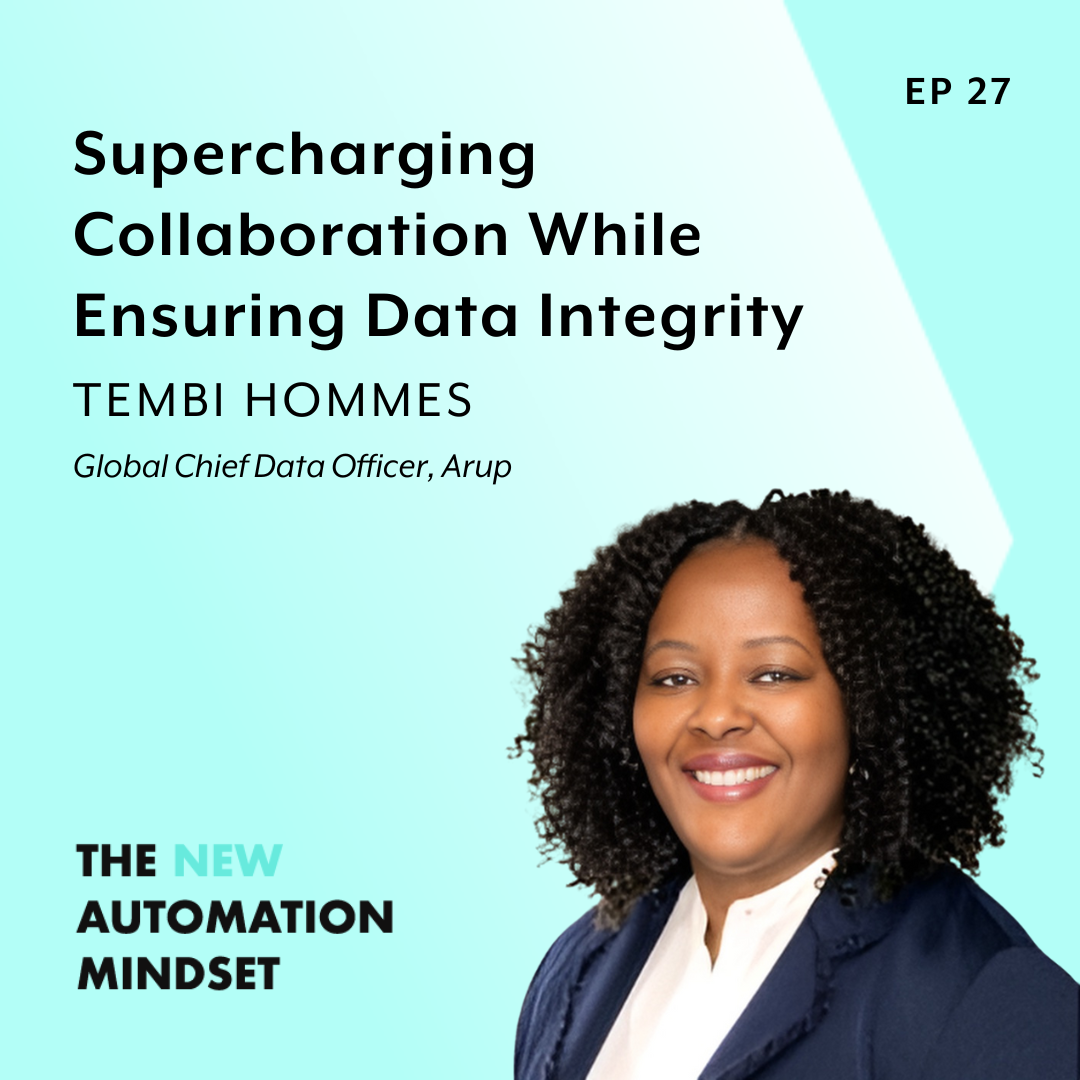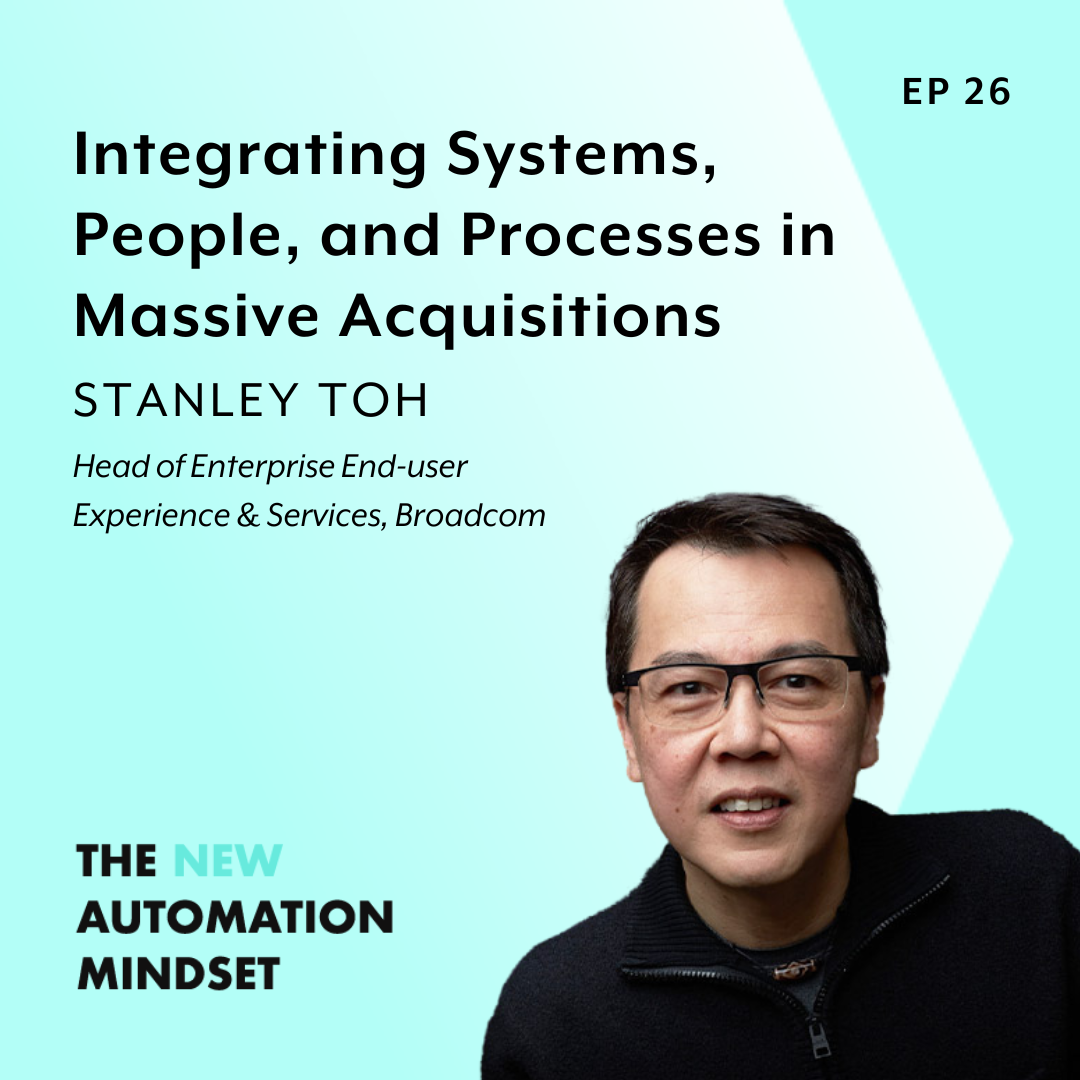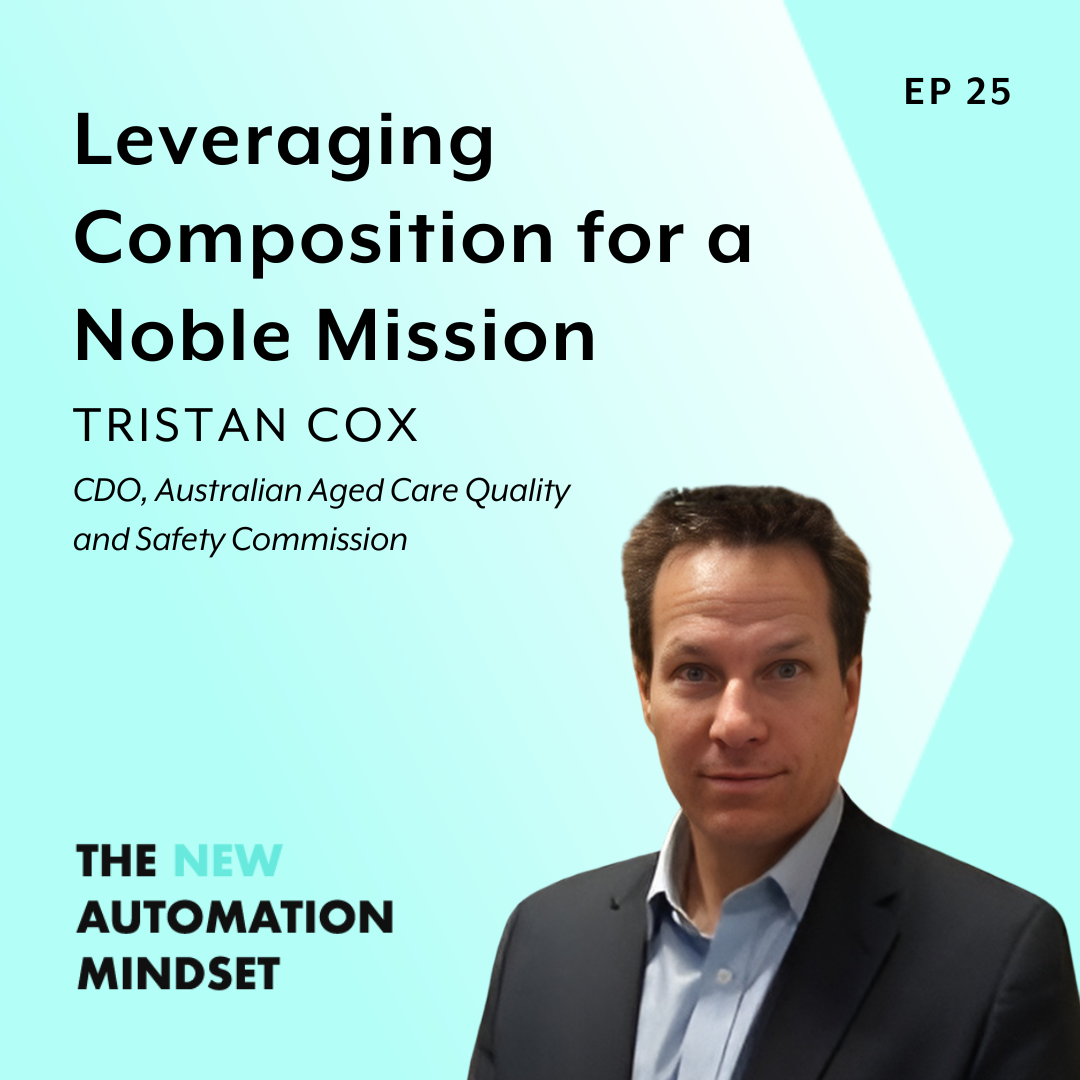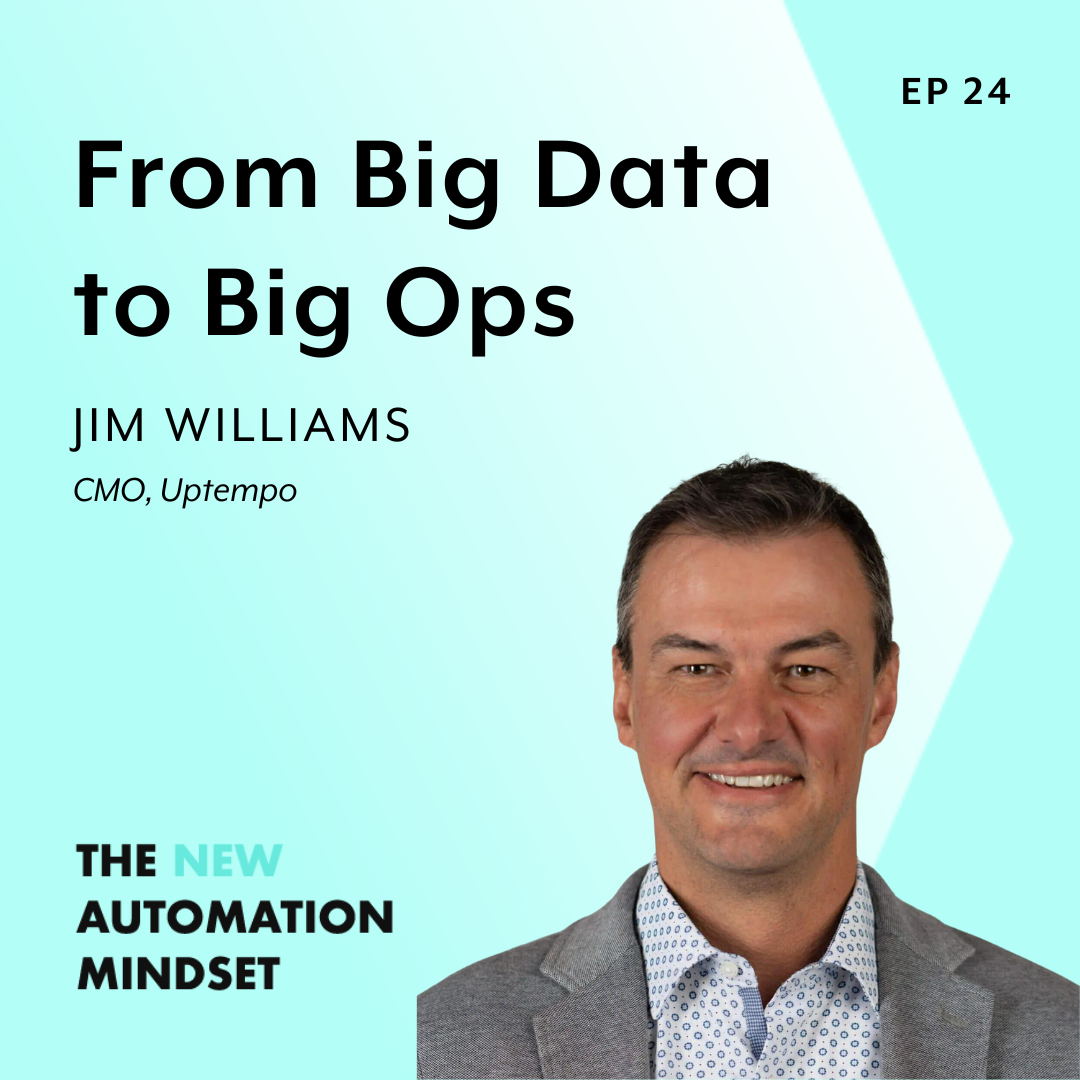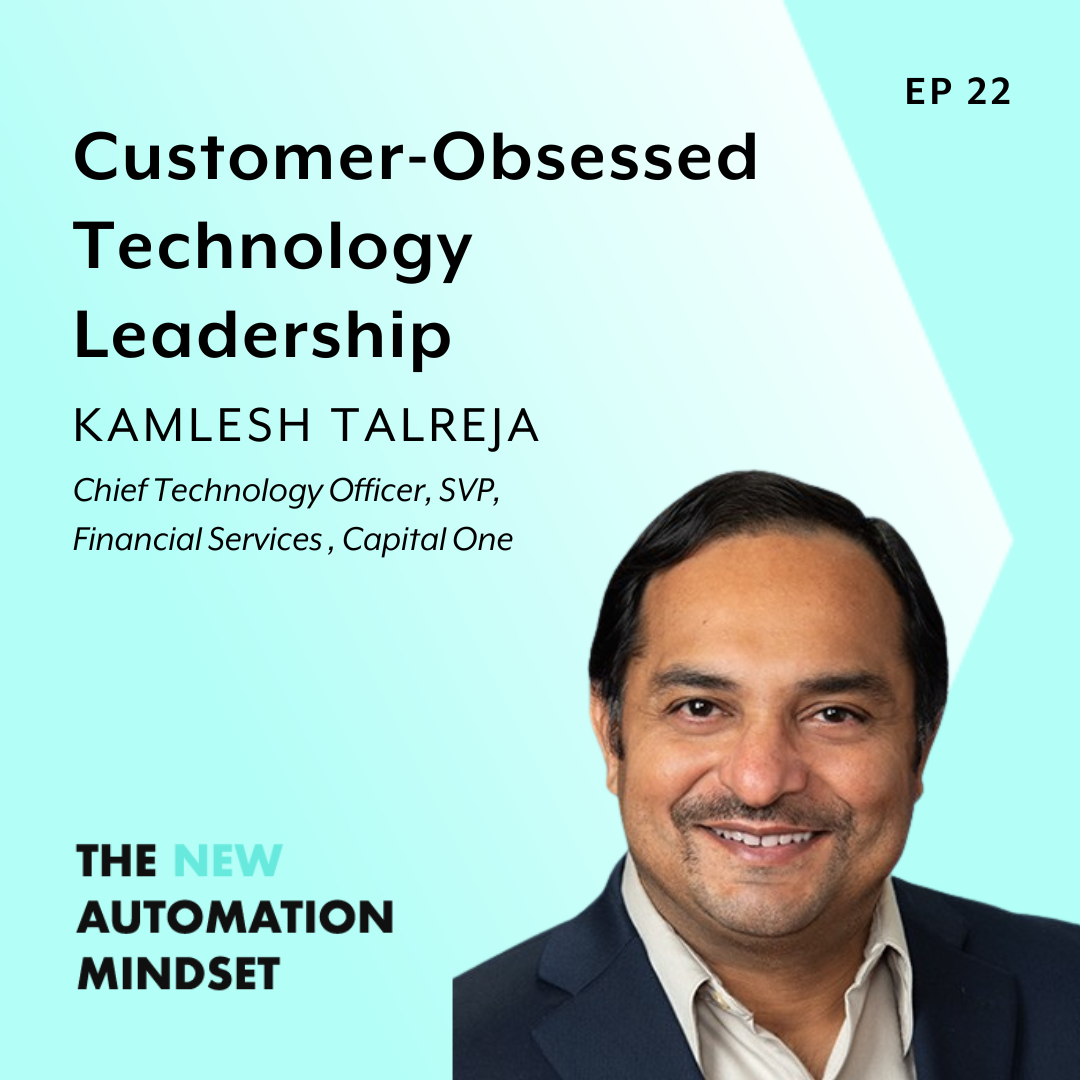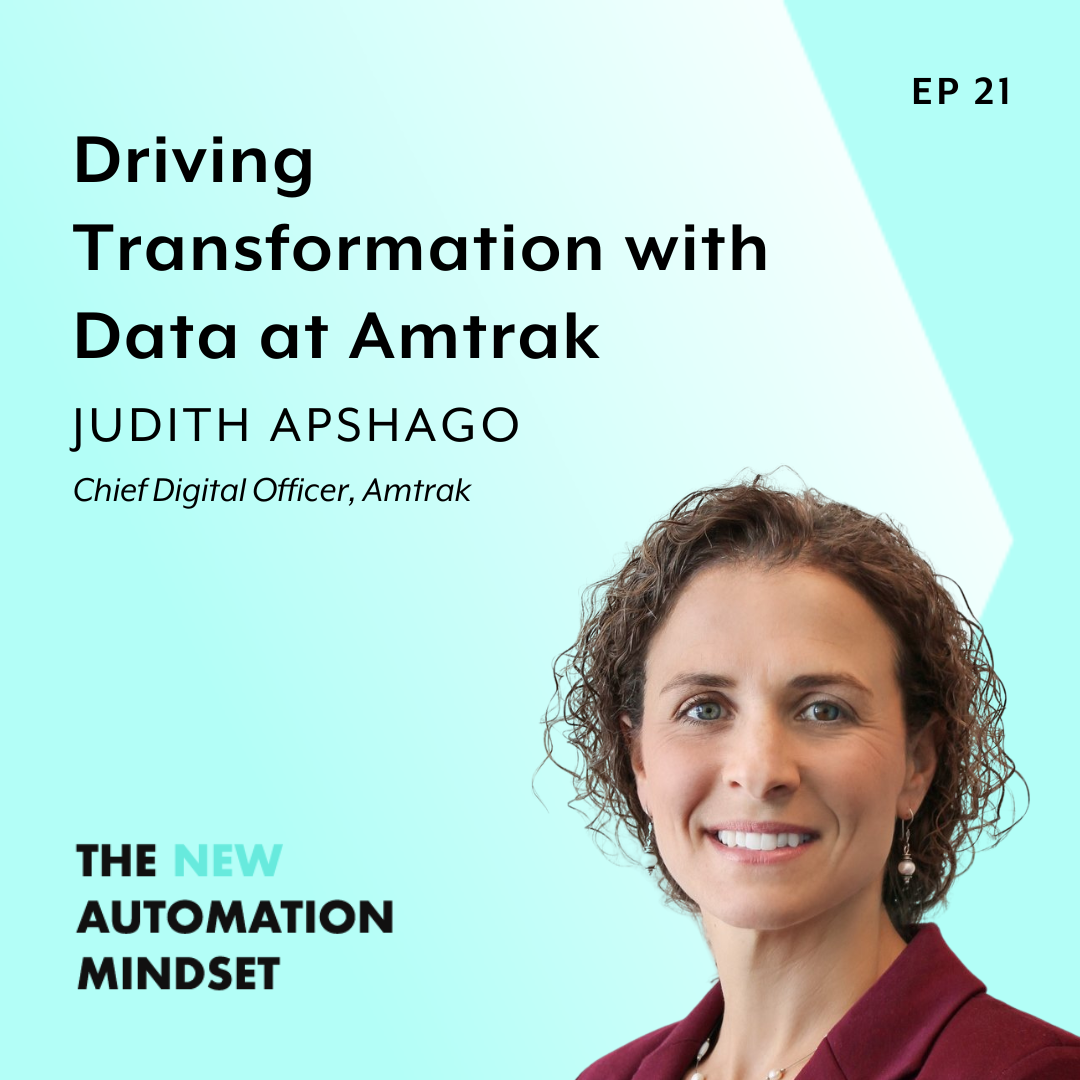The Integration Scaling Journey
- 0.5
- 1
- 1.25
- 1.5
- 1.75
- 2
DESCRIPTION
Episode Summary
In this episode, Markus Zirn, Kerry Officer, and Al Smith discuss the future of business applications in HR, focusing on the shift from digitizing paper systems to creating outcome-driven user experiences. They explore iCIMS' journey through three generations of integration platforms, emphasizing low-code solutions, event-driven workflows, and the integration of AI and generative AI. You’ll learn how these advancements enhance recruitment processes and create efficient, customizable user applications. Moreover, they shed light on the principles of responsible AI, especially in sensitive data domains like HR and recruiting, ensuring fairness and transparency in automated systems.
Timestamps
*(00:00) Episode Start
*(03:25) Business applications as a 'digitization of paper systems'
*(05:22) iCIMS's integration journey
*(12:15) How iCIMS is scaling adoption of integration
*(19:00) Workato's impact on iCIMS’ next-gen business applications
*(21:38 iCIMS’ AI and GenAI journey
*(31:55) Responsible AI in sensitive data
*(43:10) How to enhance business applications with low code integration, event-driven workflows, and AI
Episode Key Takeaways
- Transition to outcome-driven applications: Evaluate your current business applications to identify areas where they simply digitize existing processes. Transform them into tools that actively achieve desired outcomes, leveraging tech for added value beyond digitization.
- Leverage low-code platforms for better integration: Assess your integration challenges with low-code platforms. Start small to familiarize your team, then expand gradually. This approach can help streamline your business processes, making them more adaptable and efficient.
- Adopt event-driven workflows: Identify business processes that could benefit from becoming more dynamic and responsive. Automate with event-driven architectures to enhance agility and reduce manual processing.
- Implement responsible AI practices: Begin by auditing your current use of AI to ensure it aligns with ethical guidelines. Consider where generative AI can enhance your operations without introducing bias. Focus on transparency, allowing users to understand how AI decisions are made, and involve them in the process to ensure outcomes are fair and balanced.
Top Quotes
“When we look at scaling, it's not just ‘can we deploy more customers,’ right? It’s ‘can we load larger volume data? Can we put more customers on the platform without degradation? Can we scale globally? How do we just make smarter integrations so that it's faster to deploy same day? We get them up and running in an hour.’ So there's lots of facets in scaling that come to play in automation and integrations that we've really been looking at. As technology gets smarter, and these customers continue to want more automations, they're not settling with what they have. They're always pushing those boundaries.” - Kerry Officer
“I don't think anybody says, ‘Hey, I want to do the 10 steps that it takes for me to generate a job offer for Markus.’ But I'd like to generate a job offer for Markus. That's the outcome I want to get to and I may or may not be an expert user of the software to do that. And look, there are regulatory steps in there that I need to make sure get covered. But why can't the technology help me pre-populate, know what things need to be done, take me as if it was an expert to the outcome steps and let me handle the differential things that I need to be the value add, decision-maker on. That's what we're working on as kind of the next step with this technology.” - Al Smith
Today's Host

Markus Zirn
Today's Guests

Kerry Officer

